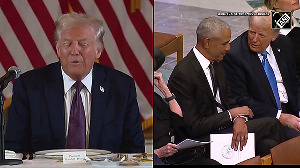 The Undisclosed Foreign Income and Assets Bill, popularly called the black money Bill, is making corporate India jittery.
The Undisclosed Foreign Income and Assets Bill, popularly called the black money Bill, is making corporate India jittery.
It feels certain provisions of the Bill are too stringent and could prevent companies from making full disclosure of foreign assets and income.
Sources said companies were consulting law firms and consultants to understand the nuances of the Bill.
“We agree that to tackle the issue of tax evasion, one needs stringent measures and ensure compliance of the highest order. But certain sections of the Bill lead to ambiguity and could result in companies shying away from compliance,” said a source.
WHAT IS WORRYING INDIA INC
- Requirement to declare beneficiaries
- No relief if disclosures are found to be inadequate, even if made in good faith
- No clarity on the format of disclosures
- Lack of clarity on valuation of an asset
Among the major issues that have corporate India worried are a requirement to declare beneficiaries; no relief if disclosures are found to be inadequate, even if made in good faith; no clarity on the format of disclosures; a low exemption limit; and lack of clarity on valuation of an asset.
Vikas Vasal, partner, KPMG, believes there is room to increase the exemption limit from the current Rs 500,000.
The safeguards in the Bill exempt those holding foreign accounts with a balance of up to Rs 5 lakh from criminal consequences.
“Thus, individual tax payers, especially those who have worked in a foreign country and earned income abroad, which has been offered to tax abroad or in India based on their tax residential status, would have to disclose their bank account balance if they continue to maintain such accounts abroad vis-à-vis their past savings.
In such cases, the exemption limit of Rs 5 lakh could be quite low and unless adequate disclosures are made, it could trigger provisions of this Bill,” he said.
Sources said it was likely India Inc would send a representation to the government through an industry body to clarify and, in certain cases, dilute some of the provisions of the Bill.
When contacted, the Confederation of Indian Industry of India (Assocham) denied it was planning to send any such representation.
The Associated Chambers of Commerce and Industry of India (Assocham) said it had already done so.
D S Rawat, secretary general of Assocham, said, “Many provisions of the Bill are highly draconian and utmost care should be taken to ensure innocents are not booked.”
He added the government should discuss the provisions of the Bill with industry and other stakeholders.
“By all means, the government should make tough laws.
"But to prevent their misuse, rules and procedures should be very simple and easy to understand.
"These shouldn’t be left to the discretion of assessing officers; these should not be left open to interpretation.
"Every minute detail should be written in the statute,” Rawat said.
The provisions of the Bill would also apply to beneficial owners and beneficiaries of illegal foreign assets.
This would potentially increase the compliance requirement of companies and individuals.
Experts say this would lead to multi-layered forms.
“The Bill states taxpayers would be required to make disclosures in a format that would be notified at a later stage.
"Unless taxpayers are aware of the format, they would be jittery in coming forward with disclosures, as and when it is notified,” said Sanjay Singhvi, partner, Khaitan and Co.
“The rules should clearly define how the assets would be valued.
Else, it will increase the possibility of disputes and litigation,” said a lawyer.











 © 2025
© 2025